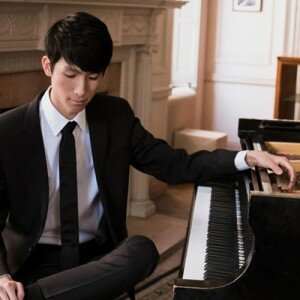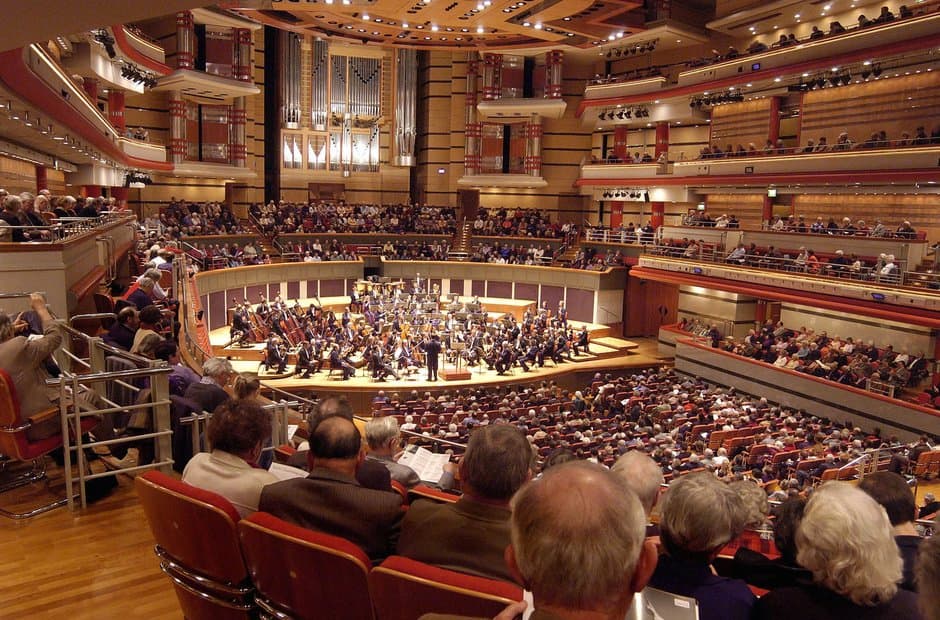The 16th edition of the Tchaikovsky International Competition has finished (and not without controversy, but that’s another story….) and another crop of prize winners have been crowned and launched onto the international music scene. French pianist Alexandre Kantorow was awarded first prize in the piano section.

Eric Lu – winner of the 2018 Leeds International Piano Competition
Success in a competition marks a decisive moment in the career of a young artist whether they win the first prize or not, and such success can make a crucial difference in the life of a talented young artist. Competition success is a reliable way for an artist to be heard and to make his/her presence known in the music world, and the top-tier competition winners are quickly signed up to record companies and management agencies. Careers are made with orchestras and competition success can guarantee a full diary of concerts with leading orchestras around the world.
“Competitions are for horses, not artists,” quipped Bartók, but for many young artists competition participation is a significant part of their musical development.
“You should compete not expecting to win but as a way of growing artistically.”
– Gabriella Montero (third prize winner in the 1995 Chopin Competition)
Competitions are a perfect opportunity for young musicians to show off their very best and to submit their playing to almost microscopic scrutiny by respected senior artists and also their peers. It gives them a goal, and the incentive to learn and prepare repertoire very deeply (a major motivation for one concert pianist I know who is a regular competition participant, and prizewinner). In addition, the intense, often lonely atmosphere of an international competition, where artists practice in solitude in preparation for a significant performance, is, in effect, a concentrated version of the life of a concert artist, and as such enables young artists to accrue professional experience and test their mental and emotional stamina.
Added to this, with television broadcasts and live streaming, competitions expose young talent to a mass audience, and bring piano performance to the world stage, giving access to all to appreciate and admire the skills, artistry, tenacity and sacrifices required to achieve an impressive live performance under intense pressure.
Competitions are inclusive too. Anyone within the stipulated age range and with the requisite talent and hunger to complete may apply to participate, and such events bring together talented people from around the world – a reminder that music is for sharing, with one’s peers and the audience.
Music competitions have their detractors, and many would agree with Bartók – that the art of music should not be subjected to such scrutiny by a committee of judges whose decision will be, by necessity, a compromise (unanimous decisions being unusual). While technical mastery can be objectively assessed by adjudicators, imagination, musicality and artistry are more a matter of personal taste and cannot necessarily be deemed “correct” or “incorrect”. It also seems ridiculous to attempt to rank something as subjective as artistic performance into a neat list – winner, second place, third place etc.

Alexandre Kantorow – winner of the 16th Tchaikovsky
International Competition (piano section)
Competitors may also select their repertoire and adjust their performances to please the judges and may be reluctant to display too much individuality or personality in their playing, which can stifle creativity and cause artistic dilution in a young artist. And where technical prowess may take precedence over artistic sensibilities, competitions are perhaps now more akin to sporting championships, which propel immature musicians into the spotlight and onto a career trajectory for which they may not yet be ready. The classical music industry is not a particularly pleasant place, and the world of international pianism is highly competitive, almost ruthlessly so. While it’s true that success in an international competition can make an artist, it can break one too. From the moment one chooses the life of the international concert pianist, one lives in the public eye: every performance and recording is held up for scrutiny, and one is under almost continual pressure to meet the expectations of agents, promoters, fickle audiences, critics and fans. Every weakness or less-than-brilliant performance is exposed and scrutinised (this does not happen to those who do not win). The pressure can be unbearable if one is not equipped to handle it.
“…one should handle them with caution, because the competition experience can very easily become destructive, both psychologically and professionally.”
– Pavel Kolesnikov (winner of the 2012 Honens competition)
Whatever a young musician’s motivation for entering a competition, there is no question that it offers a significant learning experience, whether or not one wins, and without that important experience, one’s progress, musical development and maturity won’t be the same. There is certainly no shortage of young musicians who are willing to subject themselves to this pressure, nor audiences who are keen to watch their young artists in action, and so the piano competition remains an established part of the international classical music scene.




